
Are you tired of writing code from scratch? Looking to supercharge your coding productivity? AI code editors and code generators are revolutionizing how we approach development tasks.
Whether you’re a student learning web development or a seasoned programmer, these powerful tools can save you hours of work while helping you write better code.
In this comprehensive guide, we’ll explore over 30 cutting-edge AI code editors and code generators that are changing the game.
What Are AI Code Editors?
AI code editors combine traditional integrated development environments (IDEs) with artificial intelligence to offer intelligent code completion, error detection, and even full code generation capabilities.
Unlike standard code editors, these AI-powered tools understand the context of your code and can predict what you’re trying to accomplish.
They learn from your coding style and can suggest improvements or generate entire blocks of code based on natural language prompts.
Why Use AI Code Editors?
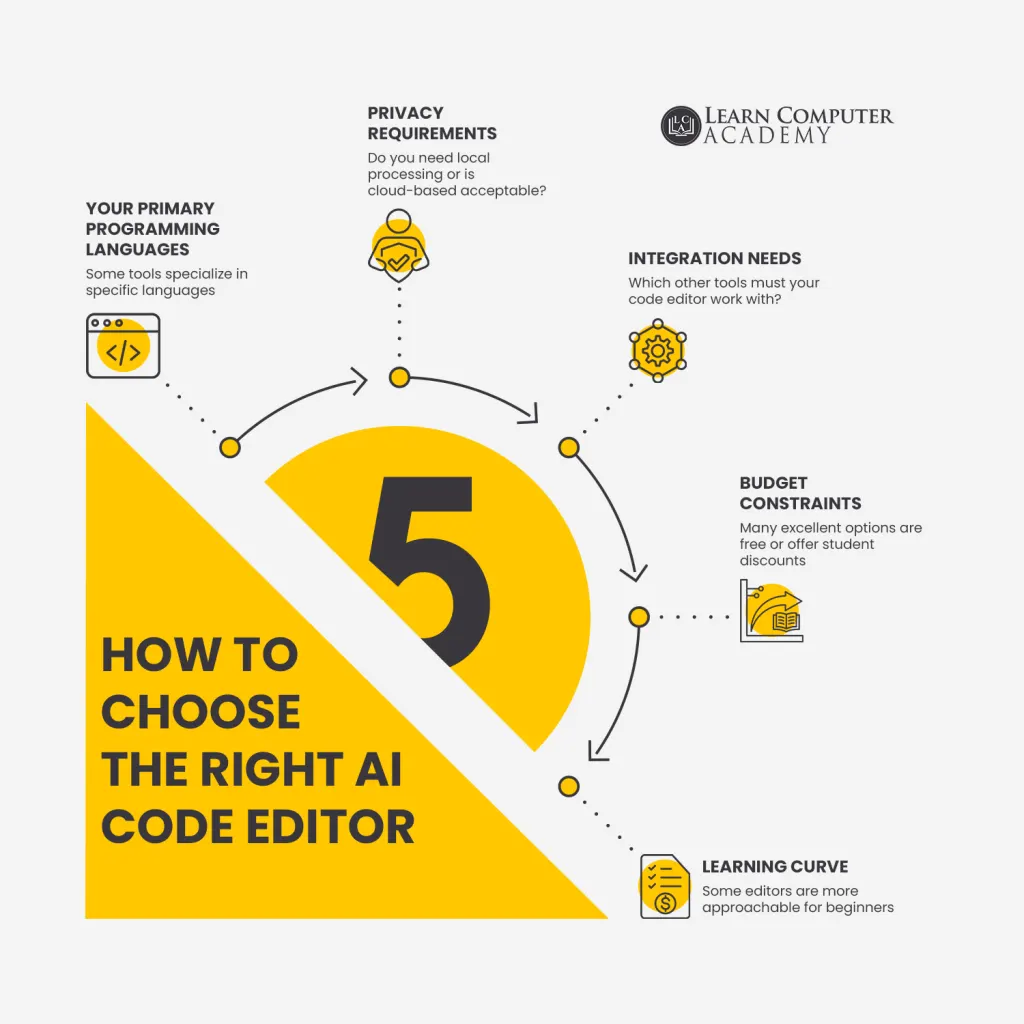
Before diving into our list, here’s why you should consider incorporating AI code generators into your workflow:
- Save valuable time by automating repetitive coding tasks
- Learn faster with intelligent suggestions and explanations
- Reduce errors through AI-powered code analysis
- Explore new approaches to solving programming challenges
- Generate HTML code and other languages without memorizing syntax
- Focus on creativity rather than boilerplate code
Now, let’s explore the best AI code editors and code generators available today!
Top AI Code Editors and Generators
1. GitHub Copilot
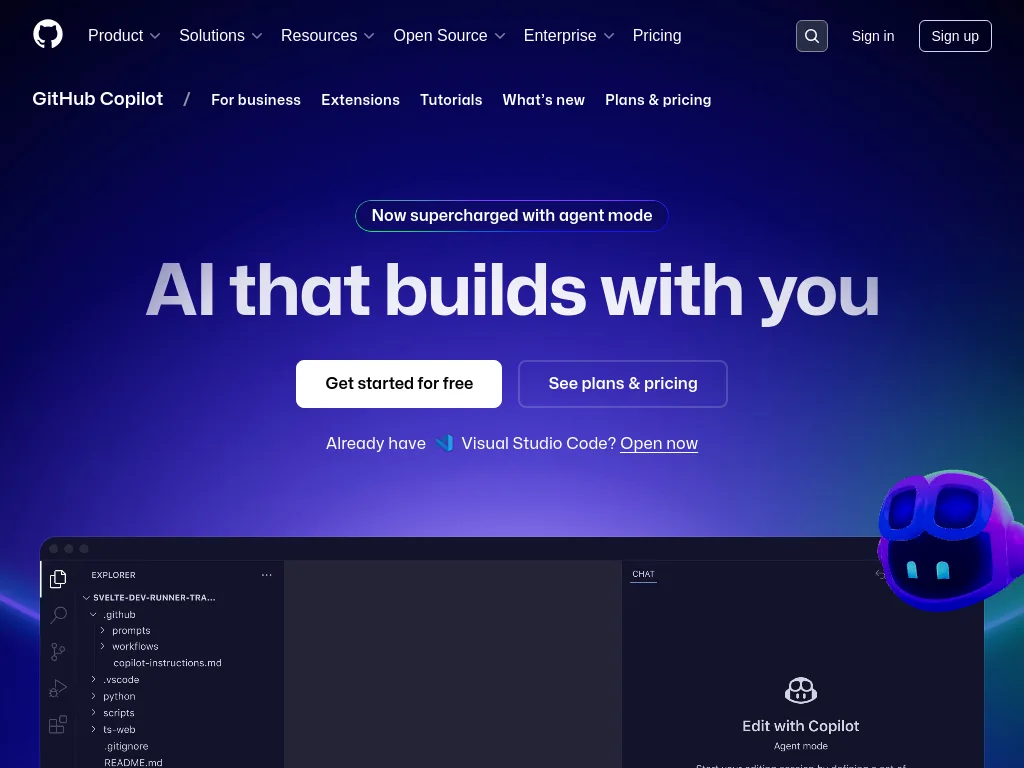
GitHub Copilot stands as the gold standard for AI code completion tools. Developed by GitHub in collaboration with OpenAI, this powerful assistant integrates seamlessly with popular editors like VS Code, Visual Studio, and JetBrains IDEs.
What makes Copilot special is its ability to understand context across multiple files in your project. It doesn’t just generate snippets—it writes meaningful code that aligns with your codebase.
Key features:
- Suggests entire functions and blocks based on comments
- Works with dozens of programming languages
- Learns your coding style over time
- Offers alternative suggestions when you need options
As one student told us: “Copilot feels like having a senior developer looking over my shoulder, offering guidance exactly when I need it.”
2. Cursor
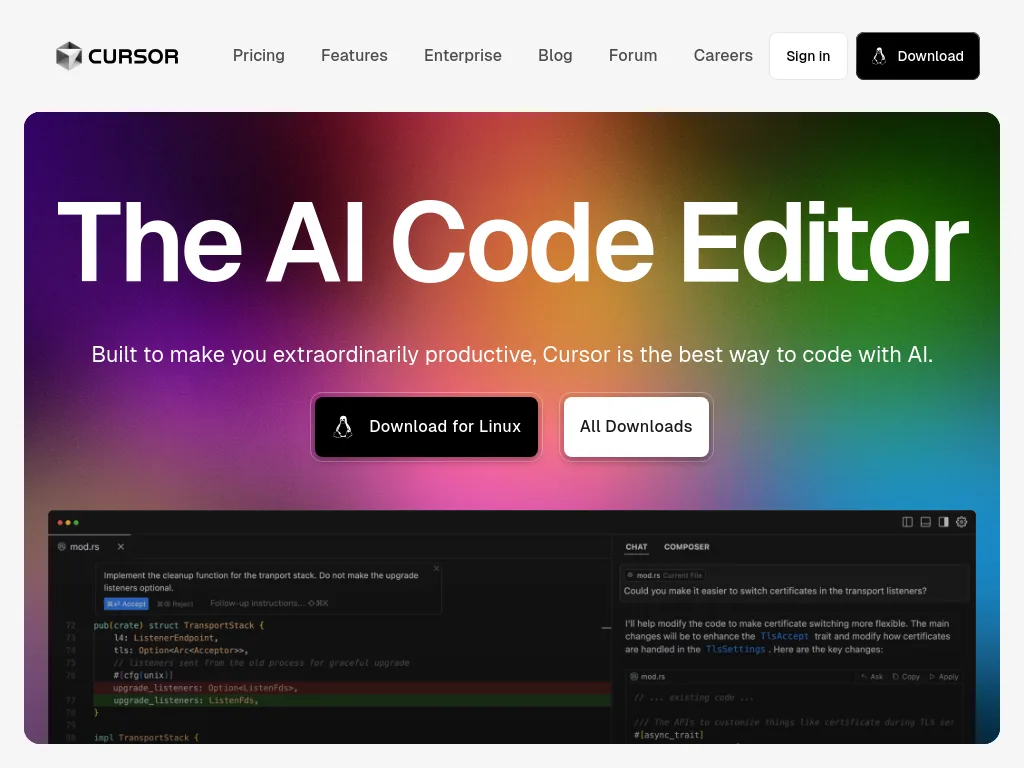
Cursor represents the next evolution in AI code editors. Built from the ground up with AI at its core, this innovative editor allows you to edit multiple files using natural language commands.
This tool shines when you need to make complex changes across your codebase or generate entire features based on descriptions.
Key features:
- Chat with your codebase to understand functionality
- Generate entire features with natural language
- Debug issues through conversation
- Explain complex code blocks in simple terms
Cursor has quickly become a favorite among web developers for its ability to generate HTML code and complex JavaScript functions with minimal input.
3. Tabnine
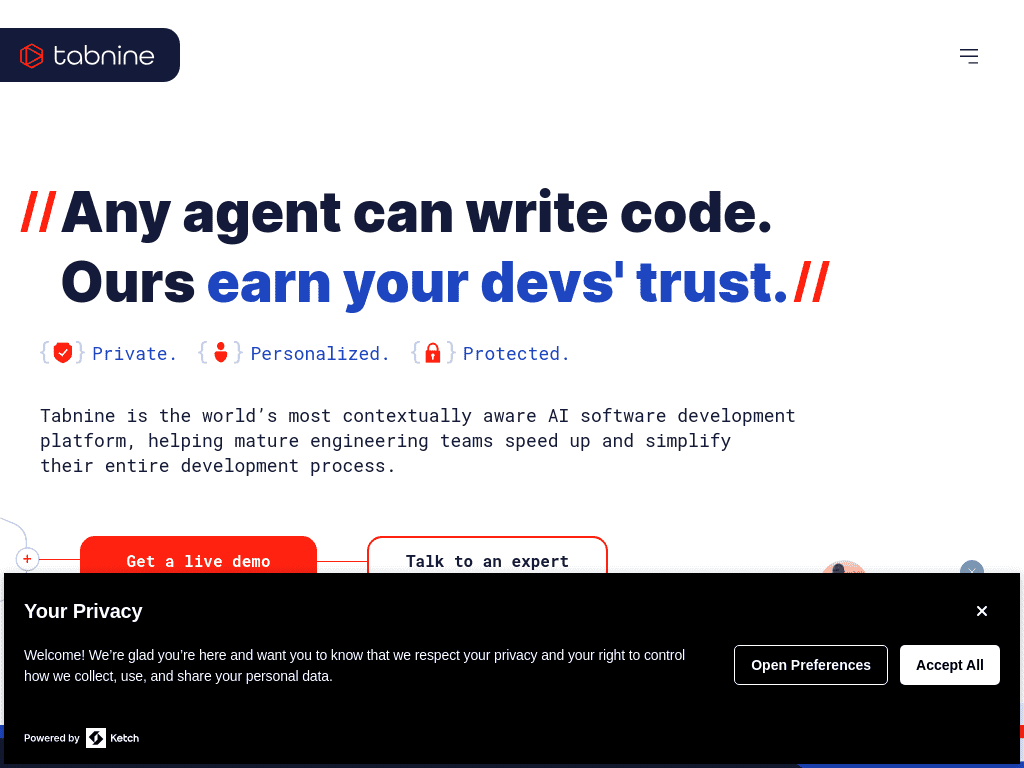
For those concerned about privacy and security, Tabnine offers a compelling alternative to cloud-based solutions. This AI code editor prioritizes data protection while still delivering powerful code completion capabilities.
Tabnine stands out by running locally on your machine while still offering AI-powered suggestions.
Key features:
- Privacy-focused with local processing options
- Works with 20+ languages and frameworks
- Seamless integration with popular IDEs
- Team-based customization options
Web development students particularly appreciate Tabnine’s ability to suggest framework-specific code for React, Angular, and Vue projects.
4. Windsurf

Privacy-conscious developers will appreciate Windsurf’s approach to AI code generation. This relatively new code editor runs entirely offline, ensuring your code never leaves your machine.
Despite operating locally, Windsurf delivers surprisingly powerful code suggestions across multiple languages.
Key features:
- 100% offline operation
- No data sharing required
- Works without internet connection
- Low system resource requirements
Windsurf is gaining popularity among Python developers and data scientists working with sensitive information.
5. Amazon Q Developer

Amazon’s entry into the AI code editor space focuses on security and AWS integration. This powerful tool helps developers write, understand, and transform code while identifying security vulnerabilities.
It’s particularly valuable for teams working with AWS services.
Key features:
- Deep AWS service integration
- Security vulnerability detection
- Natural language code generation
- Policy compliance checking
Students learning cloud development find Amazon Q Developer invaluable for understanding AWS best practices.
6. Replit Ghostwriter

Replit has transformed coding education with its browser-based development environment. Ghostwriter takes this further by adding powerful AI capabilities directly into this popular platform.
The real-time collaboration features make it perfect for team projects and classroom settings.
Key features:
- Works entirely in your browser
- Real-time collaboration support
- Integrated AI chat assistant
- Explanation of complex code
Web development instructors love using Replit Ghostwriter to teach HTML code creation and JavaScript fundamentals.
7. Qodo

Qodo specializes in helping developers generate comprehensive test cases—often the most tedious part of coding. This focused approach makes it an excellent companion to more general-purpose AI code editors.
Testing becomes significantly less painful with Qodo’s intuitive interface.
Key features:
- Automatic test case generation
- Supports test-driven development
- Integration with CI/CD pipelines
- Coverage analysis suggestions
Students learning test-driven development find Qodo makes the concept much more approachable.
8. Visual Studio IntelliCode
visualstudio.microsoft.com/services/intellicode

Microsoft’s AI-enhanced IntelliSense has evolved into a sophisticated code generator that understands context and patterns. IntelliCode integrates seamlessly with the Visual Studio family of products.
For Windows-based development, few tools match its polish and integration.
Key features:
- Context-aware code completion
- Pattern-based suggestions
- Team completion models
- Argument completion
C# and .NET developers consistently rate IntelliCode as one of their most valued productivity tools.
9. AskCodi

AskCodi stands out by offering complexity analysis alongside its code generation capabilities. This unique approach helps developers understand the performance implications of AI-generated code.
This educational aspect makes it particularly valuable for computer science students.
Key features:
- Code complexity analysis
- Performance suggestions
- Multiple language support
- API integration capabilities
Students learning algorithm efficiency concepts particularly benefit from AskCodi’s analytical approach.
10. Codiga
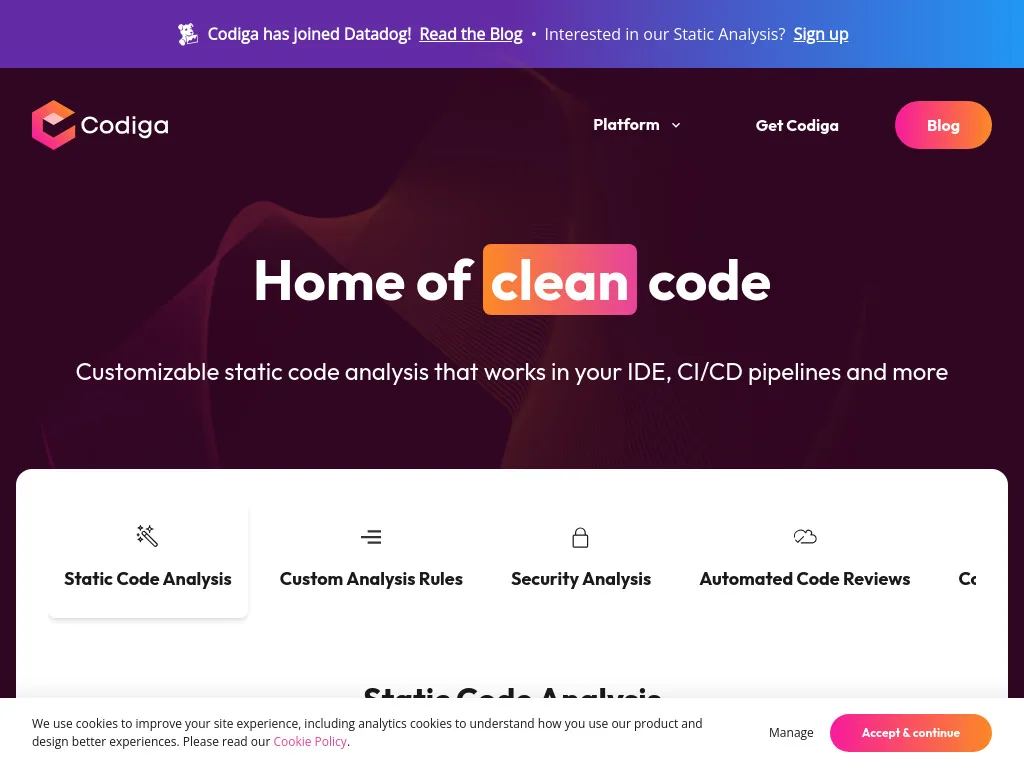
Codiga combines code generation with automated code review capabilities. This dual approach ensures that AI-generated code meets quality standards and follows best practices.
The extensive recipe library makes common coding tasks nearly instantaneous.
Key features:
- Automated code reviews
- Reusable code “recipes”
- Security vulnerability scanning
- Custom coding standards enforcement
Web development teams appreciate Codiga’s ability to ensure consistent HTML code structure across projects.
11. Zed

Performance-minded developers love Zed for its blazing speed and efficient design. This lightweight code editor delivers AI capabilities without the bloat found in some competitors.
Recent updates have added support for local LLMs, making it increasingly popular among privacy-conscious developers.
Key features:
- Rust-based performance optimization
- Local LLM support
- Collaborative editing features
- Minimal resource requirements
Students with older hardware particularly appreciate Zed’s efficiency without sacrificing AI capabilities.
12. Snyk

Security-conscious development teams turn to DeepCode for its AI-powered vulnerability detection. Now part of Snyk, this tool helps identify potential security issues before they make it into production.
Its semantic analysis capabilities catch bugs that traditional linters miss.
Key features:
- AI-powered security scanning
- Semantic bug detection
- Integration with CI/CD pipelines
- Critical vulnerability prioritization
Cybersecurity students benefit greatly from DeepCode’s explanations of potential vulnerabilities.
HTML Code Generators and Web Development Tools
For web design and development students, these next tools specialize in generating HTML code and related front-end technologies.
13. Ponicode (CircleCI)
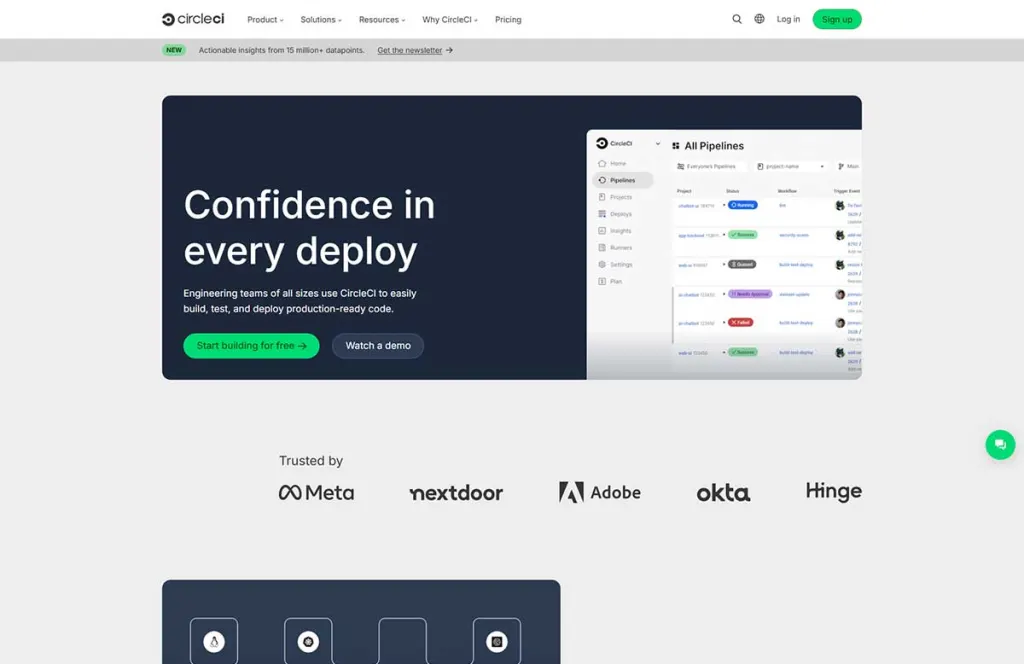
Now part of CircleCI, Ponicode excels at generating test cases for web applications. Its natural language interface makes it easy to describe functionality and receive working code in return.
The focus on JavaScript testing makes it invaluable for front-end development.
Key features:
- Natural language code generation
- JavaScript testing focus
- Integration with CI/CD workflows
- Coverage optimization
Students learning test-driven web development particularly benefit from Ponicode’s intuitive approach.
14. Codestral
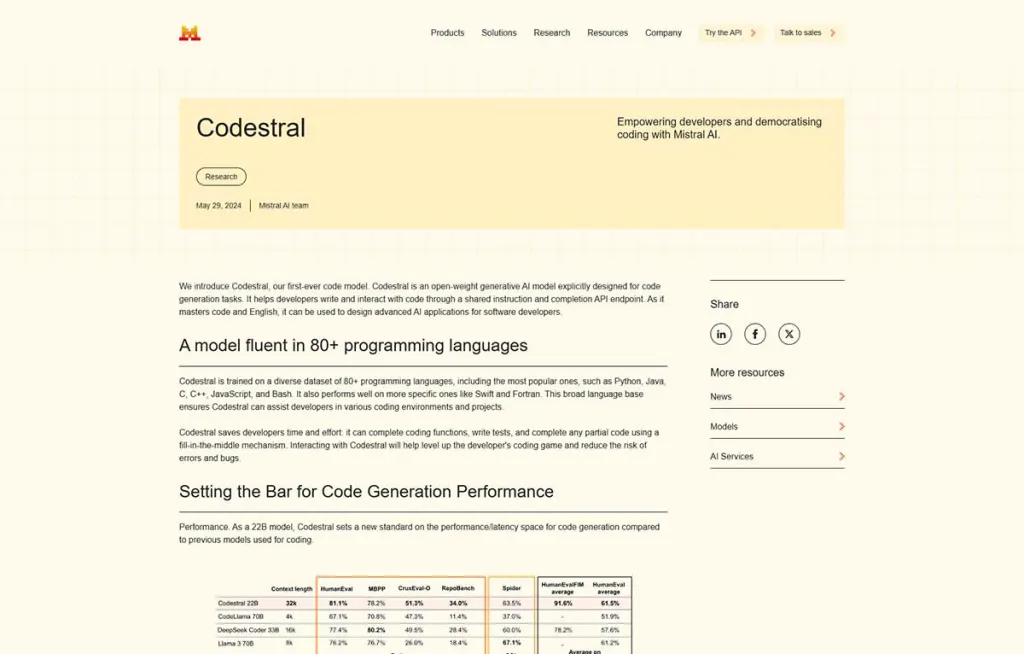
Mistral’s code-focused model delivers impressive results for HTML code creation and web development tasks. Available through Hugging Face, this open model can be incorporated into various development environments.
Its multilingual capabilities make it suitable for international development teams.
Key features:
- Open model architecture
- Multi-language support
- High-quality code generation
- Customization options
Web design students appreciate Codestral’s ability to generate semantic HTML from simple descriptions.
15. Wing IDE
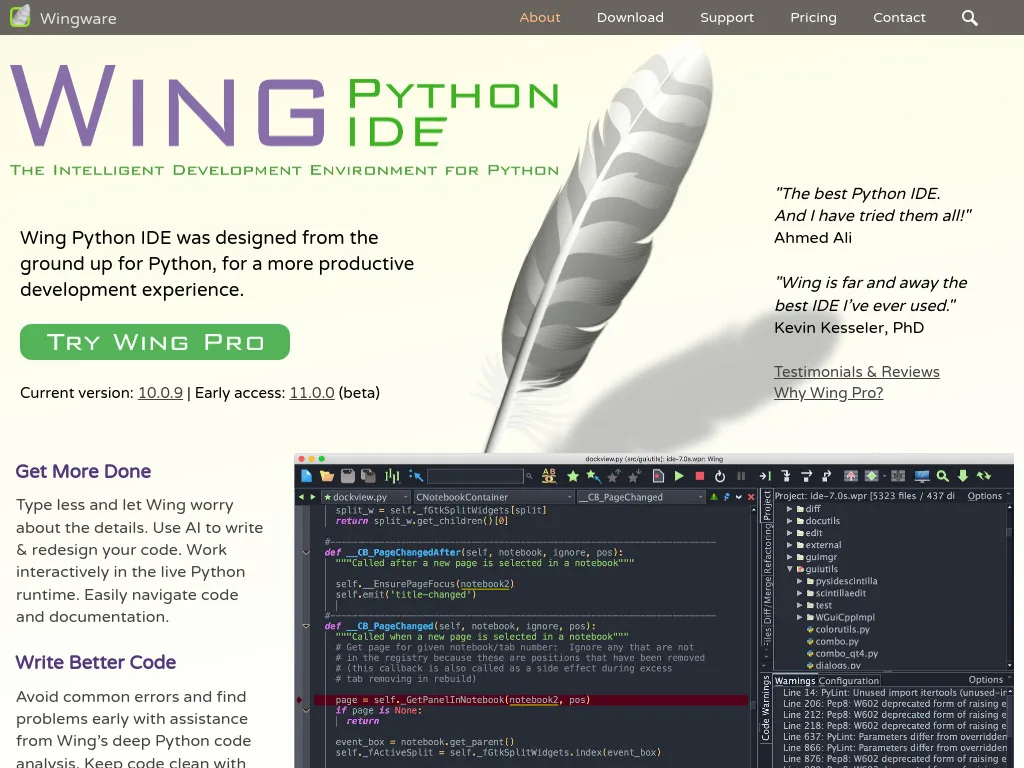
Wing IDE combines traditional Python development tools with increasingly sophisticated AI capabilities. Its intelligent debugger sets it apart from many competitors in the AI code editor space.
The focus on Python makes it particularly valuable for data science applications.
Key features:
- Python-focused development
- AI-enhanced debugging
- Code analysis tools
- Remote development support
Data science students appreciate Wing’s specialized Python capabilities and visualization tools.
16. Hugging Face Code Models

Hugging Face has become the go-to repository for AI models, including numerous code-generation models. This open platform allows developers to experiment with different approaches to code generation.
The community aspect provides valuable resources for learning about AI-assisted coding.
Key features:
- Multiple model options
- Community-contributed improvements
- Educational resources
- Integration flexibility
Computer science students researching AI often start with Hugging Face’s extensive model library.
17. Cody (Sourcegraph)
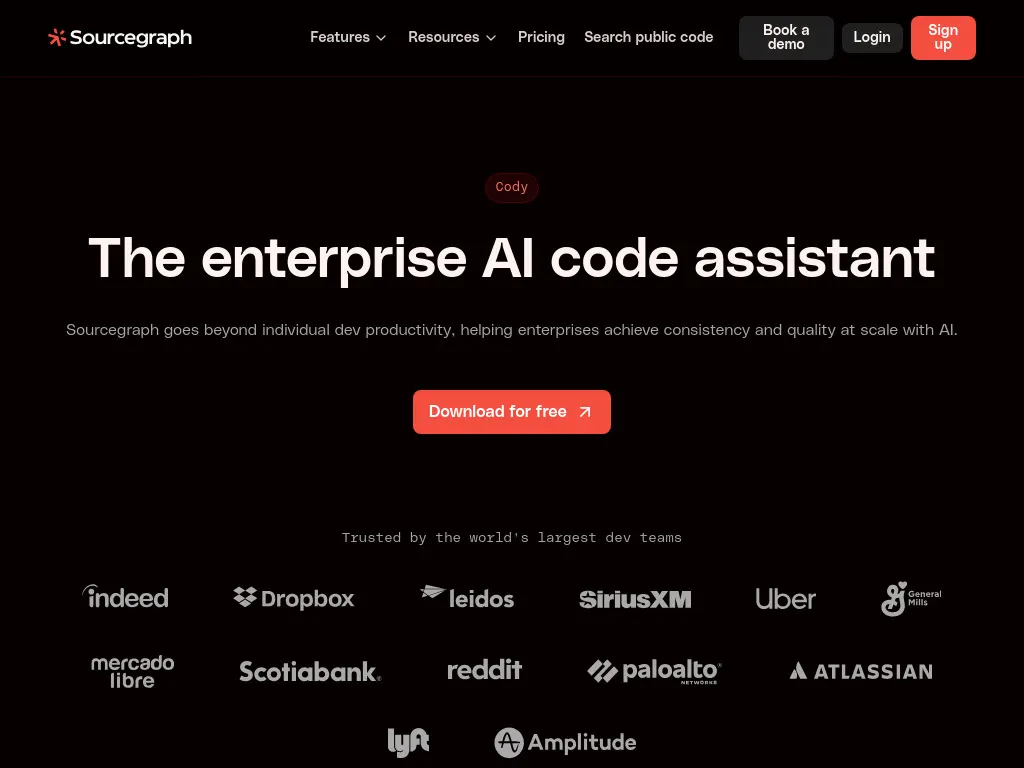
Sourcegraph’s Cody differentiates itself by understanding your entire codebase, not just the current file. This context-aware approach leads to more relevant suggestions and more accurate code generation.
The integrated search capabilities make navigating large projects much easier.
Key features:
- Full codebase understanding
- Powerful search integration
- Cross-repository awareness
- Pull request generation
Software engineering teams working on large projects particularly value Cody’s contextual awareness.
18. Pieces for Developers
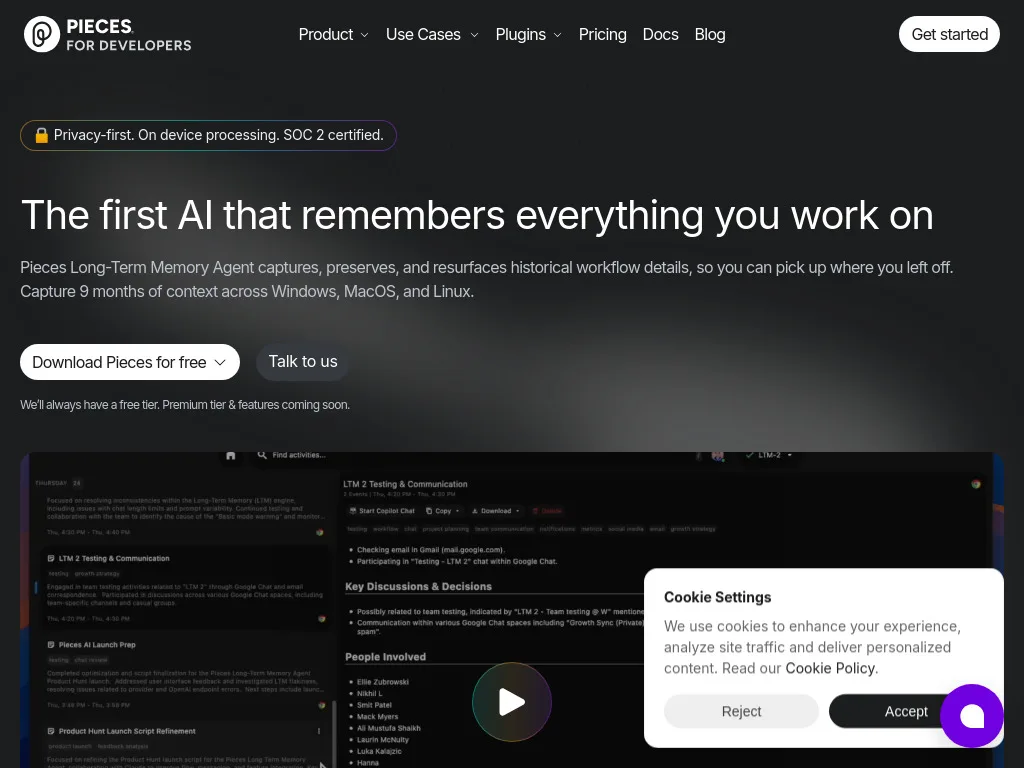
Pieces combines AI code generation with intelligent snippet management. This unique approach helps developers build a personalized library of reusable code components.
The context preservation features ensure you never lose track of how or why a snippet was created.
Key features:
- AI-assisted snippet creation
- Context preservation
- Cross-platform synchronization
- Smart search capabilities
Web developers find Pieces invaluable for managing commonly used HTML code patterns.
19. Workik

Workik focuses on seamless integration with modern CI/CD pipelines. This AI code generator helps teams maintain consistency across projects while automating repetitive coding tasks.
Its template system makes it particularly useful for maintaining coding standards.
Key features:
- CI/CD integration
- Template-based generation
- Team collaboration tools
- Consistency enforcement
Development teams use Workik to ensure junior members follow established coding patterns.
20. CodeConvert AI

As the name suggests, CodeConvert specializes in translating code between programming languages. This free tool helps developers migrate projects or learn new languages by seeing familiar code in a different syntax.
Web developers find it particularly useful when transitioning between JavaScript frameworks.
Key features:
- Cross-language code translation
- Format preservation
- Comment translation
- Free for most common languages
Students learning multiple programming languages use CodeConvert to reinforce similarities and differences.
21. AI2SQL

Database work becomes significantly easier with AI2SQL, which translates natural language descriptions into proper SQL queries. This specialized tool is invaluable for web developers working with database-driven applications.
The query optimization suggestions help developers write more efficient database interactions.
Key features:
- Natural language to SQL translation
- Query optimization suggestions
- Support for multiple database systems
- Complex join generation
Web development students learning database concepts find AI2SQL makes SQL much more approachable.
22. GitHub Spark
githubnext.com/projects/github-spark

GitHub Spark takes code generation to another level by allowing developers to create entire applications using natural language descriptions. The integrated preview functionality helps visualize results immediately.
This powerful tool is revolutionizing rapid application development.
Key features:
- Full application generation
- Live preview functionality
- GitHub integration
- Collaborative editing
Entrepreneurial students use Spark to quickly prototype business ideas without extensive coding.
23. Refact.ai
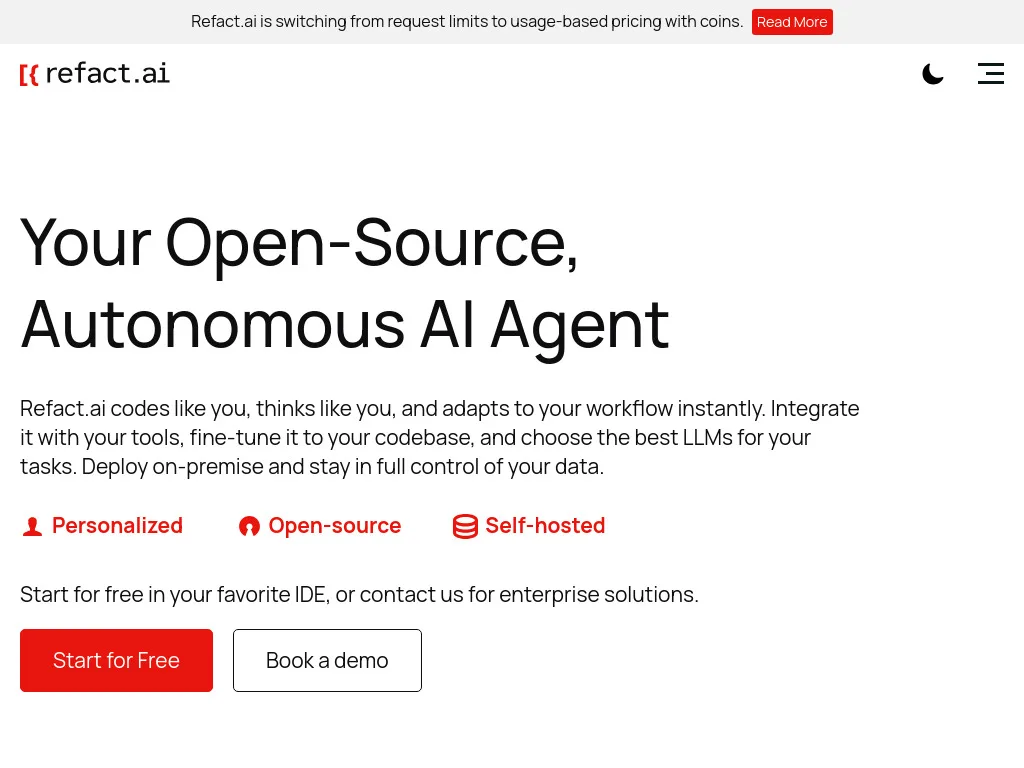
Code refactoring—improving existing code without changing functionality—is Refact.ai’s specialty. This focused tool helps developers improve code quality, readability, and performance.
Its optimization suggestions are particularly valuable for performance-critical applications.
Key features:
- Automated refactoring suggestions
- Performance optimization
- Readability improvements
- Security enhancement recommendations
Computer science students learning about code quality metrics find Refact.ai invaluable for practical demonstrations.
24. JetBrains Qodana

From the makers of popular IDEs like IntelliJ and PyCharm, Qodana brings AI-powered code quality analysis to the entire development lifecycle. It helps teams identify and manage technical debt systematically.
Its integration with other JetBrains products creates a seamless development experience.
Key features:
- Technical debt management
- CI/CD integration
- Quality gate enforcement
- Cross-language support
Software engineering programs often incorporate Qodana into their curriculum for teaching code quality concepts.
25. CodeGate

Privacy concerns have driven the development of tools like CodeGate, which prioritize data security while still delivering powerful AI coding assistance. This emerging tool operates with strict data handling policies.
Its compliance with various regulatory frameworks makes it suitable for sensitive industries.
Key features:
- Privacy-first architecture
- Compliance certification
- Customizable data retention
- Enterprise security features
Cybersecurity students appreciate CodeGate’s transparent approach to data handling.
26. Kilo Code

Rounding out our list, Kilo Code specializes in planning and architectural suggestions. This open-source tool helps developers think through implementation strategies before writing code.
Its focus on planning helps prevent common design mistakes.
Key features:
- Code planning assistance
- Architectural suggestions
- Bug identification and fixes
- Open-source community
Software architecture students benefit from Kilo Code’s methodical approach to planning.
27. Continue.dev

Continue.dev offers an open-source AI coding assistant that integrates seamlessly with your local development environment. This tool stands out for its commitment to privacy and customization.
Key features:
- Open-source code generation
- Local-first approach
- Customizable AI models
- IDE-agnostic integration
28. CodeGPT

CodeGPT provides a versatile AI coding assistant that supports multiple programming languages and integrates with various development environments. Its focus on natural language interactions makes coding more intuitive.
Key features:
- Multi-language support
- Natural language code generation
- Contextual understanding
- Collaboration features
29. Aider
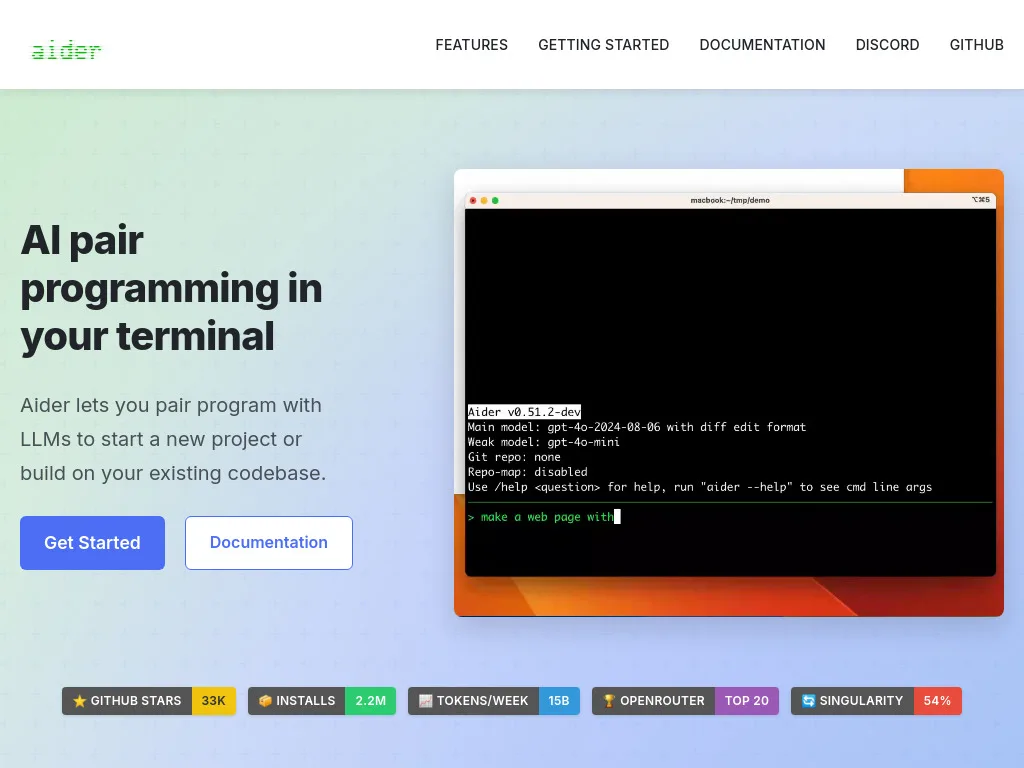
Aider specializes in AI-powered pair programming, allowing developers to collaboratively work with AI on complex coding tasks. Its unique approach focuses on real-time code generation and modification.
Key features:
- Pair programming with AI
- Git repository integration
- Real-time code modifications
- Contextual code suggestions
30. Sourcery
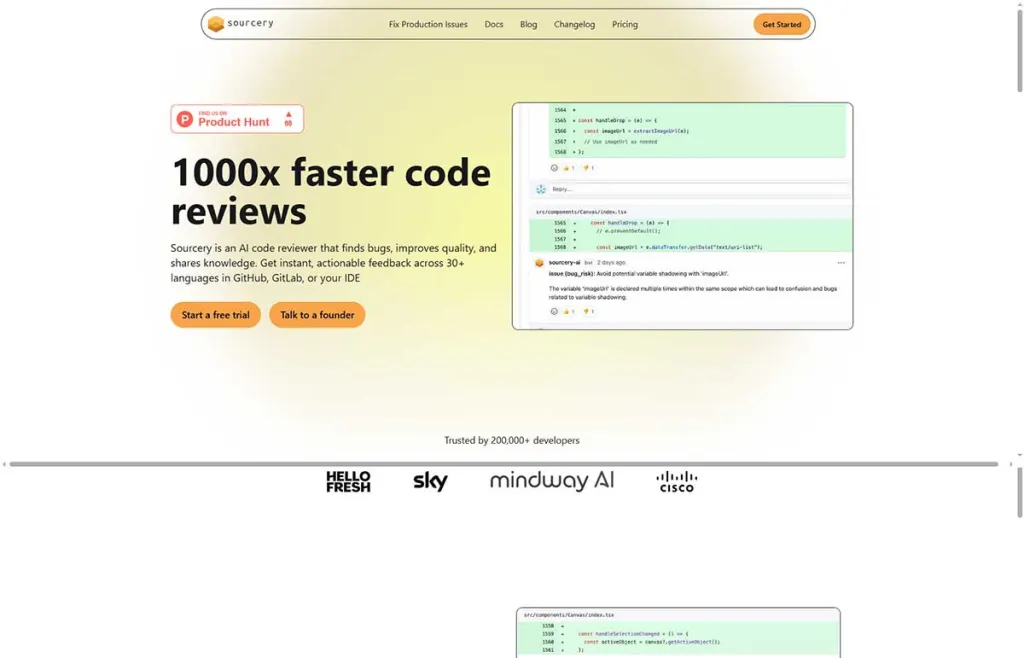
Sourcery focuses on code quality and refactoring, using AI to identify and suggest improvements to existing code. It’s particularly valuable for developers looking to enhance their code’s efficiency and readability.
Key features:
- Automated code refactoring
- Performance optimization suggestions
- Style consistency checks
- Real-time code quality analysis
31. Blackbox AI
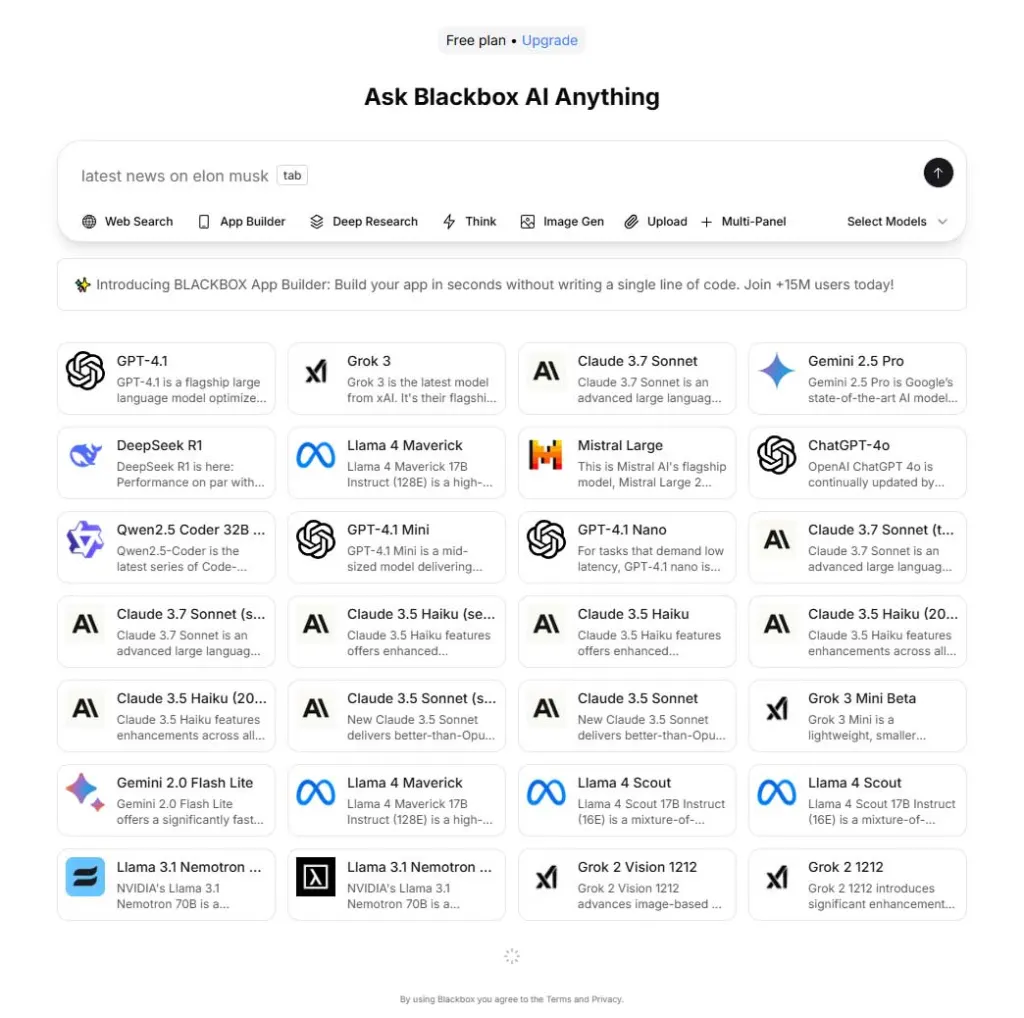
Blackbox AI offers a comprehensive AI coding assistant that supports code generation, completion, and explanation across multiple programming languages and frameworks.
Key features:
- Cross-language code generation
- Code explanation capabilities
- Browser-based coding interface
- Quick snippet generation
32. Wingman AI
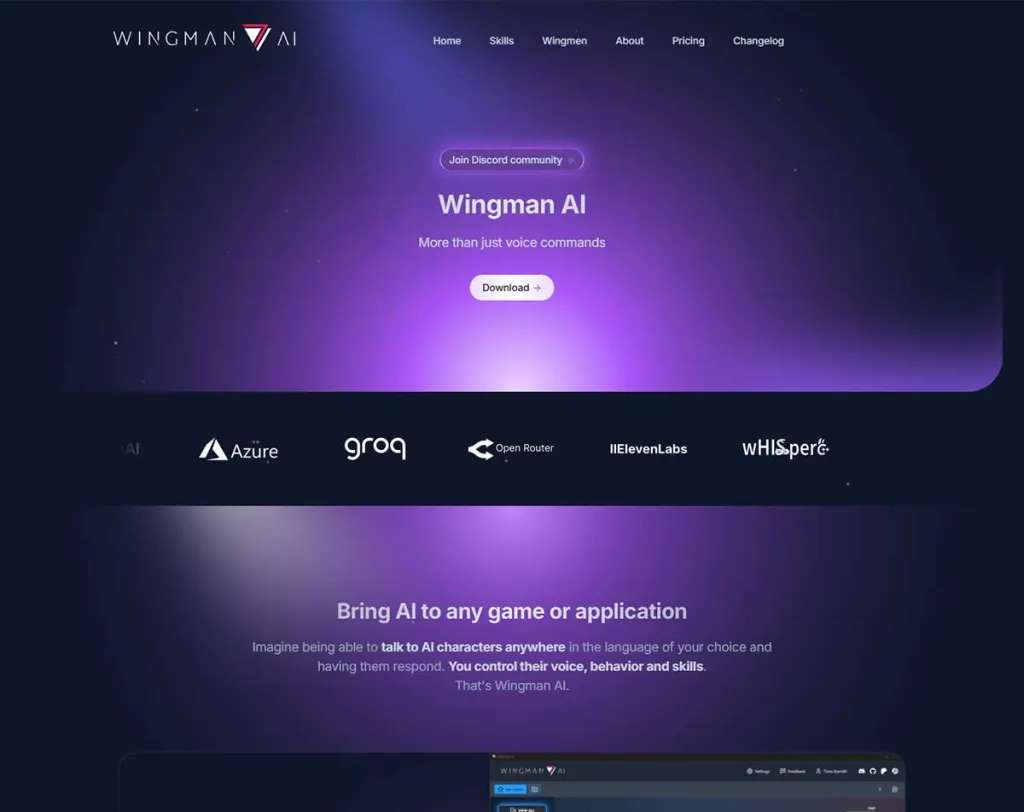
Wingman AI provides an intelligent coding assistant that focuses on helping developers write more efficient and cleaner code. Its contextual suggestions aim to improve overall development productivity.
Key features:
- Contextual code suggestions
- Performance optimization
- Learning from development patterns
- Multi-language support
33. Code Complete AI

Code Complete AI offers a comprehensive solution for code generation and completion, with a strong emphasis on understanding project context and developer intent.
Key features:
- Comprehensive code generation
- Project-wide context understanding
- Intelligent code completion
- Adaptive learning capabilities
How to Choose the Right AI Code Editor

With so many options available, selecting the right AI code editor can be overwhelming. Consider these factors when making your choice:
- Your primary programming languages – Some tools specialize in specific languages
- Privacy requirements – Do you need local processing or is cloud-based acceptable?
- Integration needs – Which other tools must your code editor work with?
- Budget constraints – Many excellent options are free or offer student discounts
- Learning curve – Some editors are more approachable for beginners
For web development students specifically looking to generate HTML code, tools like Codeium, GitHub Copilot, and CodeConvert AI offer excellent capabilities.
The Future of AI Code Editors
AI code editors are evolving rapidly. Here are some trends to watch:
- More specialized tools for specific domains and languages
- Improved understanding of project context and developer intent
- Enhanced collaboration features for team-based development
- Stronger security analysis integrated into the coding process
- Better natural language processing for more intuitive interactions
As these tools continue to mature, they’re increasingly becoming essential parts of modern development workflows rather than optional extras.
Getting Started with AI Code Generation
If you’re new to AI code editors, here’s a simple process to begin:
- Start with a free tool like Codeium or Tabnine
- Begin with simple tasks like generating HTML code or CSS
- Learn to write effective prompts that clearly describe your intent
- Gradually incorporate AI suggestions into more complex projects
- Always review and understand generated code before implementing
Remember that AI code editors are tools to enhance your capabilities, not replace your understanding. The most effective developers use AI to handle routine tasks while focusing their creativity on solving unique problems.
Conclusion
AI code editors and code generators are transforming how we approach development tasks. From generating HTML code to creating complex applications, these tools can dramatically improve productivity and code quality.
Whether you’re a student just starting your coding journey or an experienced developer looking to streamline your workflow, there’s an AI code editor that fits your needs.
At Learn Computer Academy, we’re committed to helping you master these powerful tools. Our courses incorporate many of the AI code editors featured in this article, ensuring you’re prepared for the future of development.
Which AI code editor will you try first? Share your experiences in the comments below!




